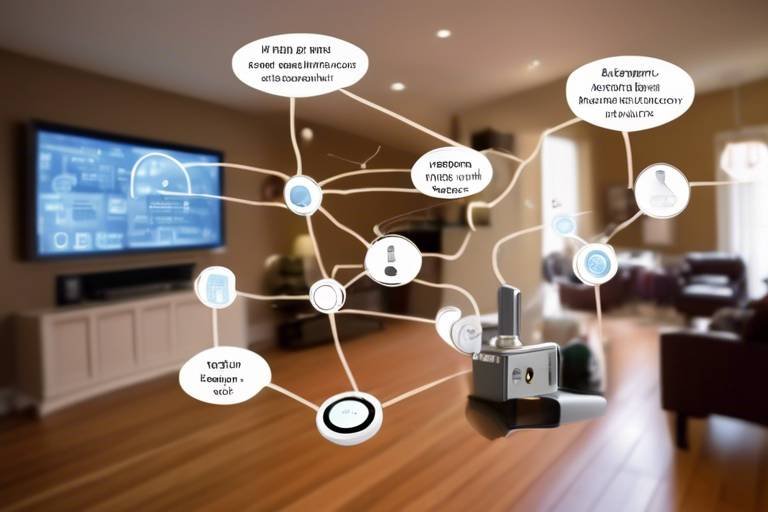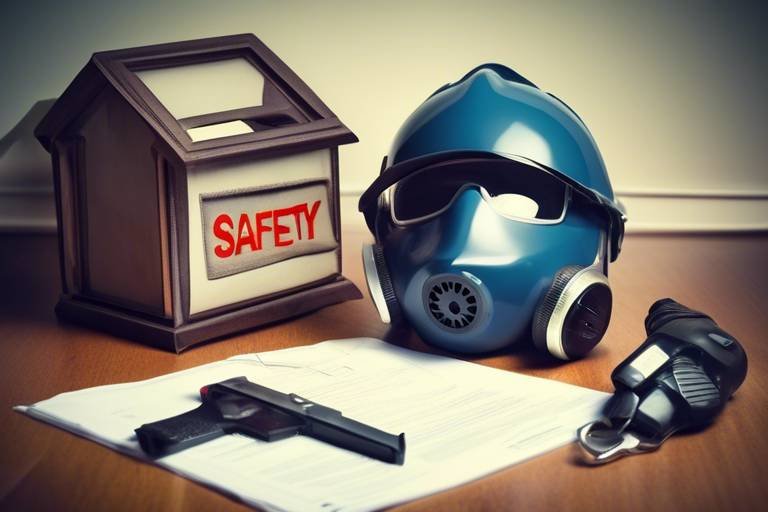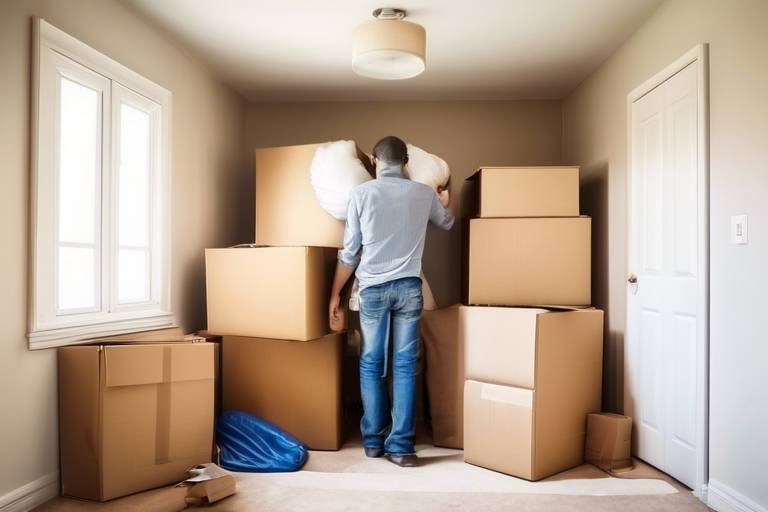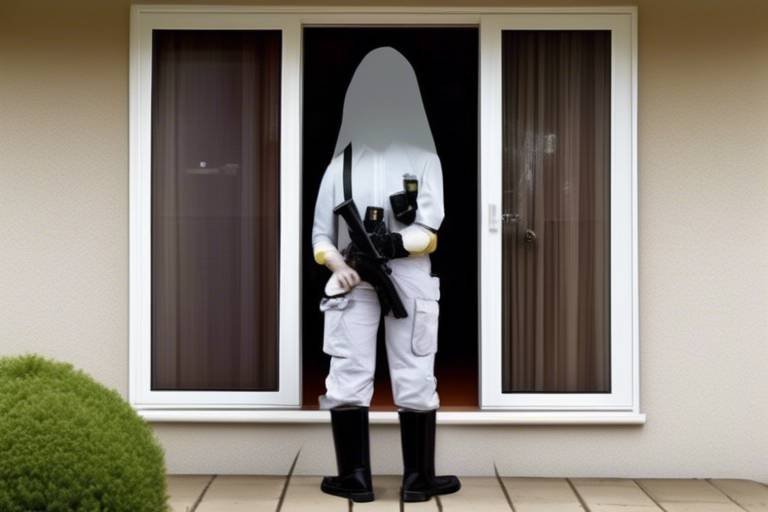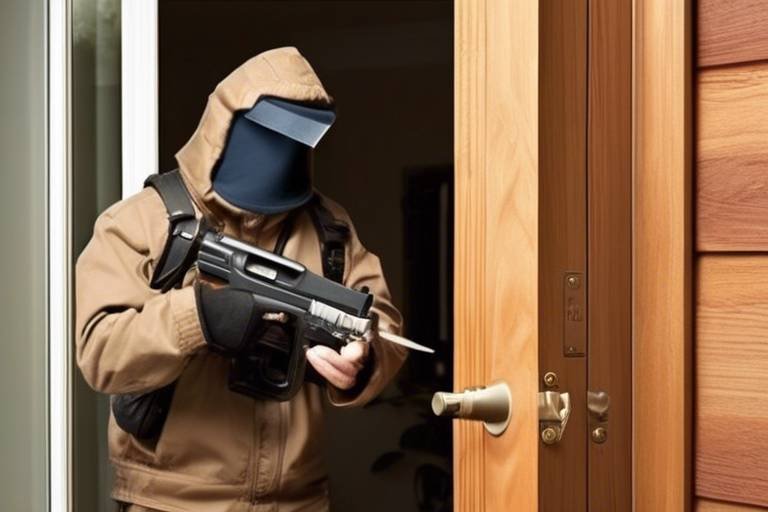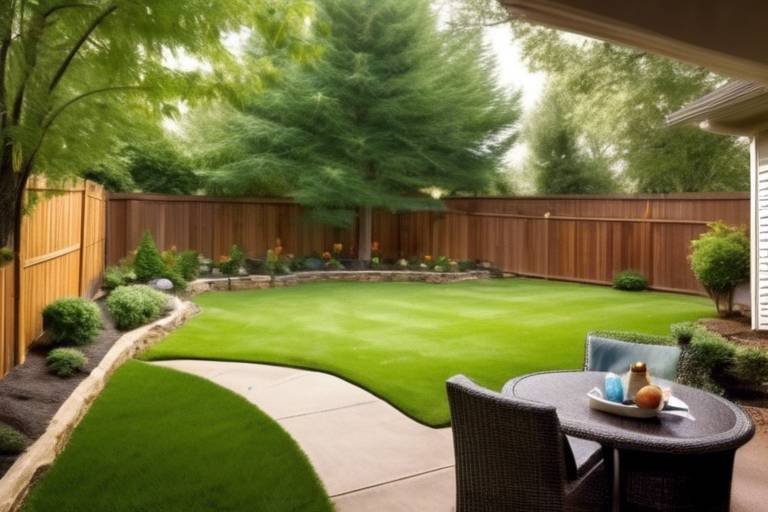The Crucial Role of Door and Window Locks in Home Safety
When it comes to making your home a safe haven, door and window locks play a pivotal role. Imagine your home as a fortress; without sturdy locks, it’s like having a castle with a drawbridge that’s always down. In today’s world, where security threats are ever-evolving, ensuring that your locks are up to the task is more crucial than ever. This article will dive deep into the significance of these locks, the various types available, and how you can enhance your home security effectively.
Locks come in various shapes and sizes, each designed to serve a unique purpose. Understanding these options is key to enhancing your home’s security. For doors, you might encounter:
- Deadbolts: Known for their strength and resistance to forced entry.
- Spring Latch Locks: Commonly found in residential settings, these are convenient but have their downsides.
- Smart Locks: The tech-savvy option, allowing you to control access via your smartphone.
Windows are not to be overlooked either. They can be secured using:
- Sliding Window Locks: These prevent the window from being opened from the outside.
- Pin Locks: Simple yet effective, these are great for double-hung windows.
- Keyed Locks: Offer a higher level of security by requiring a key for access.
Each type of lock has its own set of features and benefits, making it essential to choose wisely based on your specific needs.
Now, you might be wondering, “Why should I invest in high-quality locks?” Well, think of locks as the first line of defense against intruders. If they’re flimsy or poorly made, you might as well leave your door wide open! Quality locks not only deter potential thieves but also provide peace of mind for you and your family. A sturdy lock can withstand various forms of attack, while a subpar one could fail at the worst possible moment. Investing in reputable brands and materials is not just a suggestion; it's a necessity for anyone serious about home safety.
When comparing deadbolts and spring latch locks, it’s essential to weigh their strengths and weaknesses. Deadbolts are often considered the gold standard in home security. Their design makes them much harder to pick or force open. On the other hand, spring latch locks are convenient for quick access but often lack the robustness required for serious security. The choice between the two should be guided by your security needs and lifestyle.
Deadbolts are like the bodyguards of your door. They provide enhanced security due to their robust construction, often featuring a solid metal bolt that extends deep into the doorframe. This makes it extremely difficult for intruders to kick in your door. Furthermore, many deadbolts come with anti-drill features, adding an extra layer of protection. Security experts frequently recommend deadbolts for their reliability and strength, making them a wise choice for homeowners.
While spring latch locks offer convenience, they come with vulnerabilities. These locks can be easily manipulated with a credit card or similar object, making them less secure than deadbolts. If you’re considering using spring latch locks, it’s essential to understand their limitations. They are best used in conjunction with other security measures, rather than as a standalone solution.
Just like doors, windows are a common entry point for intruders. Therefore, securing them is just as critical. Various window lock types, such as sliding locks and keyed locks, can significantly enhance your home’s security. It’s not just about having locks; it’s about having the right locks for your windows. A well-secured window can be a formidable barrier against unauthorized access, so don’t underestimate their importance.
Proper installation of locks is vital for maximizing security. Even the best locks can fail if not installed correctly. Whether you choose to hire a professional or go the DIY route, ensuring that your locks are fitted securely and correctly is essential for optimal performance. Misalignment or improper fitting can lead to vulnerabilities that intruders can exploit.
Choosing between professional installation and DIY can significantly impact your home's security. While DIY might save you some cash, if you’re not handy, it could lead to costly mistakes. On the flip side, professionals bring expertise and ensure that everything is installed to code. If you're unsure, it’s often worth the investment to hire a pro.
Locks are not set-and-forget devices; they require regular maintenance to function effectively. Simple tasks like lubricating the keyhole, checking for rust, and ensuring that the locking mechanism operates smoothly can prolong the life of your locks. Regular checks can catch issues before they become significant problems, keeping your home secure.
Q: How often should I change my locks?
A: It’s advisable to change your locks whenever you move into a new home or after a break-in. Regular checks every few years are also recommended.
Q: Are smart locks worth the investment?
A: Yes, smart locks offer convenience and advanced security features, making them a great investment for tech-savvy homeowners.
Q: Can I install locks myself?
A: While DIY installation is possible, it’s crucial to ensure you have the right tools and knowledge. If in doubt, hire a professional.

Understanding Different Types of Locks
When it comes to securing your home, understanding the different types of locks available for doors and windows is crucial. Each type of lock offers unique features and levels of security, which can significantly influence your overall safety. So, what are the most common types of locks, and how do they stack up against each other? Let's dive into the world of locks!
First up, we have the classic deadbolt lock. This type of lock is known for its strength and durability. Unlike a spring latch that can be easily manipulated, deadbolts require a key or thumb turn to operate. This added layer of security makes them a favorite among homeowners. They come in various styles, including single-cylinder and double-cylinder deadbolts, each offering different benefits. For instance, single-cylinder deadbolts are convenient for quick access, while double-cylinder deadbolts provide extra security, especially for doors with glass panels.
On the other hand, we have spring latch locks. These locks are often found on interior doors and are generally easier to operate. They rely on a spring mechanism to keep the door closed. While they may be convenient, they are not as secure as deadbolts. A determined intruder can easily bypass them with simple tools. This is why it's essential to consider the location and purpose of the lock when choosing between the two.
Now, let's not forget about window locks. Just like doors, windows are a common entry point for burglars. Various types of window locks exist, including sliding window locks, pin locks, and keyed locks. Each type serves a different purpose and varies in effectiveness. For example, sliding window locks are designed to secure the window in place, preventing it from being opened from the outside. It's essential to assess your windows and choose locks that suit your specific needs.
To give you a clearer picture of the different types of locks, here's a quick comparison:
| Type of Lock | Security Level | Ease of Use |
|---|---|---|
| Deadbolt | High | Moderate |
| Spring Latch | Low | High |
| Sliding Window Lock | Moderate | High |
| Keyed Window Lock | High | Moderate |
In summary, understanding the different types of locks is essential for choosing the right security measures for your home. Whether you opt for a robust deadbolt or a convenient spring latch, knowing the strengths and weaknesses of each type will empower you to make informed decisions that enhance your home’s safety. Remember, the right lock can be your first line of defense against unwanted intruders!

The Importance of Quality Locks
When it comes to home security, the old saying "you get what you pay for" rings especially true. Investing in high-quality locks is not just a good idea; it's a necessity. Imagine your home as a fortress; the locks are your first line of defense. If they're weak or poorly made, it’s like leaving the gates wide open for intruders. Quality locks not only provide peace of mind but also significantly enhance the overall security of your home.
Think about it: would you trust a flimsy lock on your front door? Probably not! Quality locks are designed to withstand various forms of attack, whether it be picking, bumping, or brute force. They are often made from durable materials like hardened steel, which can resist tampering much better than cheaper alternatives. In fact, many insurance companies offer discounts for homes equipped with high-grade locks, recognizing their role in preventing theft. This means that investing in quality locks can pay off in more ways than one.
Moreover, the effectiveness of a lock is not solely determined by its physical strength. Features such as key control, smart technology, and design play a crucial role in how secure your home is. For instance, smart locks can allow you to monitor access to your home remotely, giving you an added layer of security. Additionally, locks with restricted keyways can help prevent unauthorized duplication of your keys, making it harder for someone to gain access without your permission.
Here's a quick comparison to illustrate the differences between high-quality locks and standard locks:
| Feature | High-Quality Locks | Standard Locks |
|---|---|---|
| Material | Hardened Steel | Soft Metal |
| Resistance to Picking | High | Low |
| Smart Features | Available | Rare |
| Insurance Discounts | Often Provided | Not Typically |
In conclusion, the importance of quality locks cannot be overstated. They serve as your home's primary defense against potential threats and are well worth the investment. Just as you wouldn't skimp on the quality of your home's foundation, you shouldn't compromise on the locks that protect it. Remember, a secure home is a happy home!
- What should I look for when buying locks? Look for durability, resistance to tampering, and any additional features like smart technology.
- Are smart locks worth the investment? Yes, they offer convenience and enhanced security features that traditional locks may lack.
- How often should I replace my locks? It's advisable to replace them every 5-7 years or sooner if you notice any wear and tear.

Deadbolts vs. Spring Latch Locks
When it comes to securing your home, understanding the differences between deadbolts and spring latch locks is crucial. Both types of locks serve the same primary purpose—keeping intruders out—but they do so with varying levels of effectiveness. Let’s dive deeper into each type and see how they stack up against each other.
Deadbolts are often considered the gold standard in home security. Their design is simple yet effective; they consist of a solid metal bolt that extends into the doorframe, making it significantly harder for anyone to force their way in. This added strength comes from the fact that deadbolts require a key or a thumb turn to operate, ensuring that they can’t be easily manipulated from the outside. On the other hand, spring latch locks are more common in residential properties due to their convenience and ease of use. These locks automatically latch when the door is closed, which can be a real time-saver. However, their mechanism is less robust than that of deadbolts, making them more susceptible to forced entry.
To illustrate the differences more clearly, here’s a quick comparison:
| Feature | Deadbolts | Spring Latch Locks |
|---|---|---|
| Security Level | High | Moderate |
| Installation Difficulty | Moderate | Easy |
| Cost | Higher | Lower |
| Ease of Use | Requires key or thumb turn | Automatic latching |
As you can see, deadbolts come out on top in terms of security, but they do require a bit more effort for installation and use. Spring latch locks, while easier to operate, can leave your home vulnerable, especially if they are the only line of defense. It's important to think about your specific needs when choosing between these two options.
In conclusion, if your primary concern is security, deadbolts are the way to go. They provide a level of protection that spring latch locks simply can't match. However, if convenience is your priority, you might consider using both types in tandem—installing deadbolts on your main entry points while using spring latch locks on less critical doors. This way, you can enjoy the best of both worlds.

Advantages of Deadbolts
When it comes to securing your home, deadbolts stand out as one of the most reliable options available. Unlike traditional spring latch locks, deadbolts offer a level of security that is hard to beat. Their design features a solid metal bolt that extends deep into the door frame, making it incredibly difficult for intruders to force their way in. This robust construction is particularly advantageous in high-crime areas where the threat of burglary is more pronounced.
One of the primary advantages of deadbolts is their resistance to picking and bumping, two common methods used by burglars to gain unauthorized access. Many deadbolts come with advanced features such as anti-drill plates and hardened steel construction, which further enhance their security. In fact, many security experts recommend deadbolts as a first line of defense against break-ins.
Another significant benefit is the ease of use. Deadbolts can be operated with a key or a thumb turn, allowing homeowners to choose the option that best suits their needs. This flexibility ensures that you can lock and unlock your doors quickly without compromising on security. Moreover, many modern deadbolts come with smart technology, enabling you to control access remotely. Imagine being able to lock your door from your smartphone while you're away on vacation—it's convenience and security rolled into one!
In addition to their security features, deadbolts are also relatively affordable. When you consider the peace of mind they provide, investing in a high-quality deadbolt can be one of the smartest decisions a homeowner can make. To illustrate this point, consider the table below, which compares the effectiveness and features of deadbolts versus spring latch locks:
| Feature | Deadbolts | Spring Latch Locks |
|---|---|---|
| Security Level | High | Low to Medium |
| Resistance to Picking | High | Low |
| Ease of Use | Moderate | High |
| Cost | Moderate | Low |
In conclusion, deadbolts are more than just a lock; they are a security investment that can significantly enhance the safety of your home. By choosing deadbolts, you're not only protecting your property but also ensuring the safety of your loved ones. So, if you haven't already, consider upgrading your locks to deadbolts today. It's a simple change that can make a world of difference!
- What is a deadbolt? A deadbolt is a locking mechanism that requires a key or a thumb turn to operate, providing a higher level of security compared to standard locks.
- Are deadbolts difficult to install? While some homeowners may choose to install deadbolts themselves, it's often recommended to hire a professional to ensure proper installation for maximum security.
- Can I use a deadbolt on my sliding glass door? Yes, there are specific deadbolts designed for sliding glass doors, which can enhance their security significantly.
- How often should I replace my deadbolts? It's advisable to replace deadbolts every 5 to 7 years or sooner if you notice any signs of wear or if you've experienced a security breach.

Limitations of Spring Latch Locks
While spring latch locks are often praised for their convenience and ease of use, they come with a set of limitations that can compromise your home security. One of the most significant drawbacks is their vulnerability to forced entry. Unlike deadbolts, which require a substantial amount of force to break, spring latch locks can be easily manipulated or picked by intruders. This makes them a less reliable option for homeowners who prioritize safety.
Another limitation is the design itself. Spring latch locks typically rely on a spring mechanism that can wear out over time. As the spring weakens, the lock may not engage properly, leaving your door susceptible to unauthorized access. Furthermore, if a latch lock is not aligned correctly, it can become even easier to bypass. This misalignment can occur due to shifting door frames, which are common in older homes.
Additionally, spring latch locks often lack the reinforcement found in more robust locking systems. They usually consist of a single locking mechanism that does not provide the same level of security as multi-point locking systems, which secure the door at multiple points. This limited engagement can be a serious concern, especially for doors that are frequently used or located in high-risk areas.
Here’s a quick comparison of some of the key limitations of spring latch locks:
| Limitation | Description |
|---|---|
| Vulnerability to Forced Entry | Can be easily manipulated or picked. |
| Wear and Tear | The spring mechanism can weaken over time, compromising security. |
| Alignment Issues | Misalignment can lead to easier bypassing of the lock. |
| Lack of Reinforcement | Single locking mechanism versus multi-point systems. |
In summary, while spring latch locks may serve as a quick and easy solution for securing your home, they are not without their flaws. Homeowners should consider these limitations seriously, especially if they live in areas where security is a top concern. It’s essential to weigh the pros and cons before deciding on the best locking mechanism for your doors, as the safety of your home and loved ones should always come first.

Window Lock Options
When it comes to securing your home, window locks play a pivotal role, often overlooked by many homeowners. Just like a sturdy door lock, a reliable window lock can be your first line of defense against intruders. Imagine your home as a fortress; every window is a potential entry point, and each lock is a soldier standing guard. So, what are the best options available to ensure your windows are as secure as possible?
There are several types of window locks, each designed with unique features to cater to different needs. Let's dive into some of the most common types:
- Sliding Window Locks: Ideal for horizontal sliding windows, these locks typically slide into place, securing the window from being opened from the outside. They are easy to use and provide a decent level of security.
- Single and Double-Hung Window Locks: These locks are designed for traditional windows that open vertically. Single-hung windows usually have a lock on the lower sash, while double-hung windows can have locks on both sashes, offering enhanced security.
- Keyed Locks: For those seeking an extra layer of protection, keyed locks may be the answer. They require a key to unlock, making it more challenging for unauthorized individuals to gain access.
- Window Pin Locks: These locks are simple yet effective. A pin is inserted into a hole to prevent the window from being opened, making it a great option for added security.
- Wedge Locks: These locks are designed to fit between the window sash and frame, preventing the window from being opened. They are particularly useful for windows that are not frequently used.
Choosing the right window lock is not just about functionality; it's also about compatibility with your specific window type. For example, sliding window locks work best with horizontal sliding windows, while keyed locks are more suited for vertical designs. A good rule of thumb is to ensure that the lock you choose complements the window's design and enhances its security features.
It's also essential to consider the material of your windows when selecting locks. For instance, wooden windows may require different locking mechanisms compared to vinyl or aluminum frames. Always check the manufacturer’s recommendations to ensure you’re making the best choice for your home.
In addition to the type of lock, think about the location of your windows. Windows that are more accessible, such as those on the ground floor or near trees, should have more robust locking systems. It's like putting extra locks on the doors of your fortress; the more vulnerable the entry point, the stronger the defense you need.
In conclusion, window locks are a vital component of your home's security. By understanding the various options available and selecting the right locks for your windows, you can significantly enhance your home's safety. Remember, a secure home is a happy home!
Q: What is the best type of window lock for security?
A: Keyed locks are often considered the best for security, as they require a key to unlock, making unauthorized access more difficult.
Q: Can I install window locks myself?
A: Yes, many window locks are designed for easy installation. However, if you're unsure, consider hiring a professional to ensure proper installation.
Q: How often should I check my window locks?
A: It's a good idea to check your window locks at least once a year to ensure they are functioning correctly and haven't been damaged.

Best Practices for Lock Installation
When it comes to securing your home, the installation of door and window locks is a crucial step that should never be overlooked. Proper installation can mean the difference between a secure haven and an easy target for intruders. First and foremost, always choose locks that are appropriate for your specific doors and windows. For instance, a heavy-duty deadbolt is ideal for exterior doors, while a simple latch may suffice for interior doors. But remember, not all locks are created equal, and understanding the nuances of each type can help you make informed decisions.
Another vital aspect is the placement of your locks. Ideally, locks should be positioned at least 40 inches above the ground to deter potential burglars. This height not only makes it harder for would-be intruders to reach but also keeps the lock mechanism safe from tampering. Additionally, ensure that the lock is installed in a sturdy part of the door or window frame. A lock installed in a weak area is like putting a fortress gate on a paper wall—it's just not going to hold up under pressure.
When it comes to the actual installation process, it’s essential to follow the manufacturer's instructions meticulously. Each lock comes with specific guidelines that, if adhered to, can enhance its effectiveness. If you're not comfortable with DIY installations, consider hiring a professional locksmith. While this may incur additional costs, the peace of mind knowing that your locks are installed correctly can be invaluable. After all, why risk compromising your safety with a half-hearted installation?
Regular maintenance is another key factor in ensuring your locks function effectively over time. Dust and debris can accumulate in lock mechanisms, leading to malfunctions. A simple cleaning routine, involving a soft cloth and a few drops of lubricant, can keep your locks operating smoothly. Additionally, inspect your locks periodically for signs of wear and tear. If you notice any issues, addressing them promptly can save you from larger problems down the road.
In summary, the best practices for lock installation include:
- Choosing the right type of lock for your doors and windows.
- Installing locks at an appropriate height.
- Following manufacturer instructions carefully.
- Considering professional installation if unsure.
- Maintaining and regularly inspecting your locks.
By adhering to these best practices, you can significantly enhance your home’s security. Remember, your home is your sanctuary, and taking the time to ensure it is properly secured is an investment in your peace of mind.
Q: How often should I change my locks?
A: It’s a good idea to change your locks whenever you move into a new home or if you lose your keys. Regularly inspect your locks every few years for wear and tear, and consider changing them if they show signs of damage.
Q: Can I install locks myself?
A: Yes, many locks come with installation instructions that make it possible for a DIY enthusiast to install them. However, if you are unsure or uncomfortable, hiring a professional locksmith is recommended.
Q: What type of lock is best for my front door?
A: A deadbolt lock is generally considered the best option for front doors due to its strength and resistance to forced entry. Pairing it with a quality handle lock can provide an additional layer of security.
Q: Are window locks necessary?
A: Absolutely! Window locks are just as important as door locks in preventing unauthorized access. They help secure your home and provide peace of mind.

Professional Installation vs. DIY
When it comes to securing your home, one of the most crucial decisions you’ll face is whether to opt for professional installation of locks or to take the DIY route. Both options have their merits, and understanding the differences can help you make the best choice for your security needs. Let’s dive into the pros and cons of each approach.
Choosing professional installation can provide you with peace of mind. Experts in the field are well-versed in the latest security technologies and installation techniques. They know how to assess your home’s vulnerabilities and recommend the most suitable locks based on your specific needs. Moreover, professional installers often offer warranties on their work, ensuring that you’re covered should anything go wrong. Imagine having a team of security specialists at your disposal; it’s like having a personal bodyguard for your doors and windows!
On the other hand, DIY installation can be appealing for those who enjoy hands-on projects and want to save some money. With a plethora of online tutorials and guides available, it’s easier than ever to learn how to install locks yourself. However, it’s essential to be cautious. Improper installation can lead to vulnerabilities that savvy burglars could exploit. If you’re not confident in your skills, you might end up making your home less secure instead of more secure. Think of it this way: would you attempt to fix your car without any mechanical knowledge? The stakes are just as high when it comes to home security!
Here’s a quick comparison table to help you weigh your options:
| Criteria | Professional Installation | DIY Installation |
|---|---|---|
| Expertise | High - trained professionals | Variable - depends on your skill level |
| Cost | Higher upfront cost | Lower upfront cost |
| Time | Usually quick, depending on the number of locks | Time-consuming, especially if you’re learning |
| Warranty | Often includes a warranty | No warranty unless you purchase one separately |
| Peace of Mind | High - done by experts | Variable - depends on your confidence |
Ultimately, the decision between professional installation and DIY boils down to your personal circumstances. If you have the time, skills, and confidence to install locks yourself, it can be a rewarding project. However, if you’re unsure or want to ensure top-notch security, investing in a professional might be the way to go. Remember, when it comes to protecting your home, it’s better to be safe than sorry!
- How do I know if I need professional installation? If you're unsure about your ability to install locks securely, it’s best to hire a professional.
- Can I install locks myself if I have basic handyman skills? Yes, if you feel confident and have the right tools, DIY can be a viable option.
- What should I look for in a professional installer? Look for licensed and insured professionals with good reviews and experience in home security.

Regular Maintenance Tips
Maintaining your door and window locks is not just a good idea; it’s essential for ensuring they function properly and provide the security you need. Just like a car needs regular oil changes to run smoothly, your locks require attention to keep your home safe. So, what should you do to keep your locks in tip-top shape? Here are some practical tips to consider:
First and foremost, cleaning your locks is crucial. Dust, dirt, and grime can accumulate over time, making it harder for the locking mechanism to function correctly. A simple solution is to use a soft cloth to wipe down the exterior of your locks. For the interior mechanism, a few drops of lubricant can work wonders. Just make sure to use a silicone-based or graphite lubricant—avoid oil-based products, as they can attract more dirt.
Another important aspect of lock maintenance is inspecting for any signs of wear and tear. Regularly check your locks for rust, corrosion, or any physical damage. If you notice that a lock is starting to stick or feels loose, it might be time for a replacement. Trust me, you don’t want to wait until you're locked out to realize your locks need attention!
Additionally, consider testing your locks periodically. Open and close your doors and windows to ensure that each lock engages and disengages smoothly. If you encounter any resistance, it could be a sign that the lock needs to be adjusted or replaced. Remember, a lock that doesn’t work properly is just as bad as having no lock at all!
Lastly, don’t forget about the environment around your locks. If your home is located in a high-humidity area, you may need to maintain your locks more frequently to prevent rust. Similarly, if you live in a region with extreme temperatures, check if your locks are affected by expansion or contraction, which might hinder their performance.
In summary, keeping your locks well-maintained is a simple yet effective way to enhance your home security. Regular cleaning, inspections, testing, and environmental considerations can go a long way in ensuring your locks are always ready to protect your home. After all, a secure home is a happy home!
1. How often should I clean my locks?
It's a good practice to clean your locks every few months, or more frequently if you live in a dusty or humid environment.
2. What type of lubricant should I use on my locks?
Use a silicone-based or graphite lubricant, as they do not attract dirt and will keep your locks functioning smoothly.
3. How can I tell if my lock needs to be replaced?
Signs that a lock may need replacement include difficulty turning the key, visible rust or corrosion, or physical damage to the lock itself.
4. Can I install locks myself, or should I hire a professional?
While DIY installation is possible, hiring a professional ensures that your locks are installed correctly and securely, providing better protection for your home.
Frequently Asked Questions
- What types of locks are best for home security?
When it comes to home security, deadbolts are often considered the gold standard. They provide a higher level of protection compared to spring latch locks. For windows, look for window locks that are sturdy and difficult to manipulate. A combination of high-quality deadbolts for doors and reliable window locks will significantly enhance your home's safety.
- Why is it important to invest in quality locks?
Investing in quality locks is crucial because they directly impact your home’s security. Cheap locks can be easily picked or broken, leaving your home vulnerable. High-quality locks, on the other hand, are made from durable materials and often have advanced features that deter intruders. Think of your locks as the first line of defense; wouldn’t you want them to be strong and reliable?
- How do I choose between professional installation and DIY?
Choosing between professional installation and DIY depends on your comfort level and expertise. Professional installation ensures that locks are fitted correctly, which can be critical for security. However, if you're handy and confident, DIY can save you money. Just remember, if you go the DIY route, take your time and follow the instructions carefully to avoid any installation mishaps!
- How often should I maintain my locks?
Regular maintenance is key to keeping your locks in top shape. Aim to check and lubricate your locks at least once a year. If you notice any sticking or difficulty turning the key, don’t wait—address it immediately. Think of it like taking care of your car; regular check-ups can prevent bigger issues down the road!
- What are the vulnerabilities of spring latch locks?
Spring latch locks are convenient, but they do come with vulnerabilities. They can be easily manipulated with a credit card or similar object, making them less secure than deadbolts. If you live in a high-crime area or want to ensure maximum security, it’s wise to consider upgrading to a deadbolt or another more secure option.
- Are window locks really necessary?
Absolutely! Many homeowners overlook window security, but it's just as important as door locks. Windows are often a target for burglars, and having sturdy window locks can deter unauthorized access. It’s like having a safety net; you might not think you need it until it’s too late!






